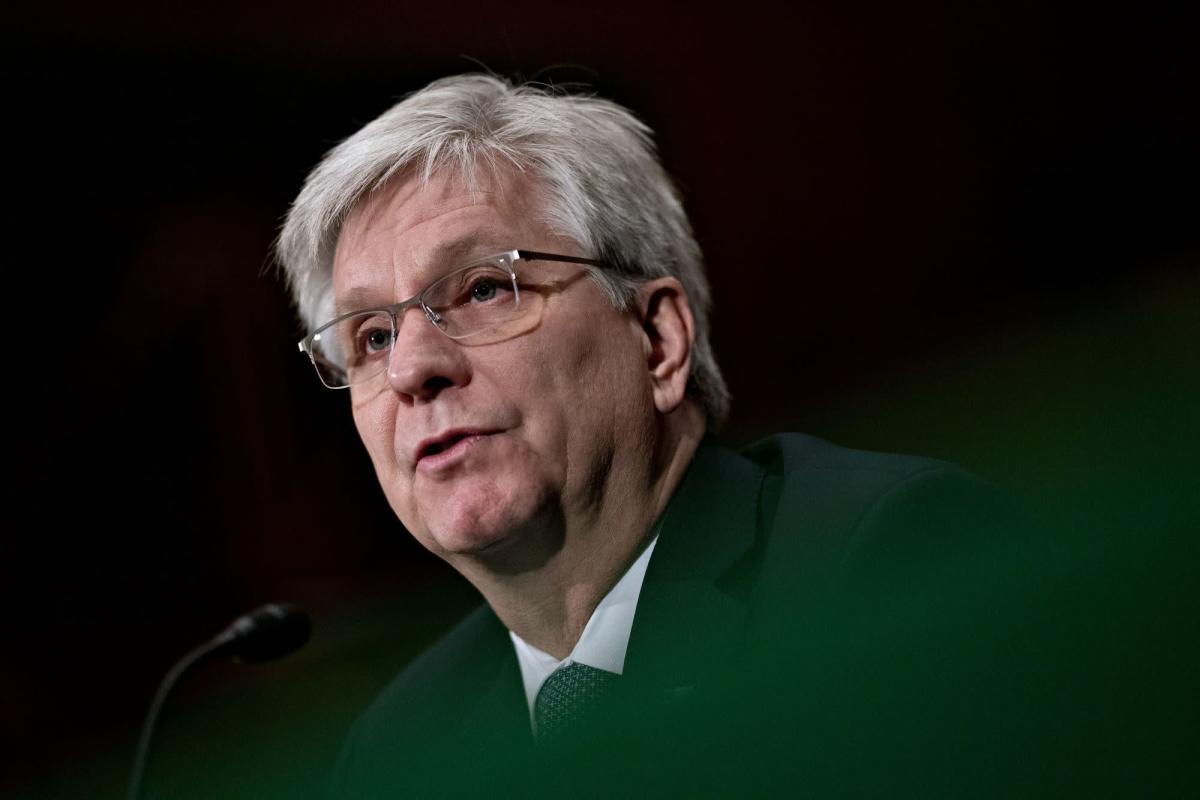
(Bloomberg) — Federal Reserve Governor Christopher Waller backed raising rates by 75 basis points this month after a hot inflation report, prompting investors to pull back bets officials would hike by 100 basis points, though he said he could go bigger if warranted by the data.
“With the CPI data in hand, I support another 75 basis-point increase,” Waller said Thursday in remarks to a Global Interdependence Center event in Victor, Idaho.
While the June consumer price index report released Wednesday was a “major league disappointment,” Waller stressed that his vote is contingent on additional data due before the July 26-27 Fed policy meeting, citing retail sales and housing.
“If that data come in materially stronger than expected it would make me lean towards a larger hike at the July meeting to the extent it shows demand is not slowing down fast enough to get inflation down,” said Waller.
Answering questions from Bloomberg’s Michael McKee following the speech, Waller said a 75 basis-point hike is “huge” and that if the Fed opts for such a move, it wouldn’t mean officials are failing to confront price pressures.
“Don’t say because you are not doing a 100 you are not doing your job,” he said, adding “you don’t want to really overdo the rate hikes.”
His comments were echoed by St. Louis Fed President James Bullard, who told Nikkei in an interview on Wednesday that was published Thursday that he favored hiking by 75 basis points later this month.
“So far, we’ve framed this mostly as 50 versus 75 at this meeting. I think 75 has a lot of virtue to it” because it brings the benchmark rate to roughly the neutral level as seen by policy makers, Bullard was quoted as saying. “As of today, I would advocate 75 basis points again at the next meeting.”
Trader Bets
Two-year Treasury yields fell following their remarks, reversing the day’s increase as traders shifted bets back toward a 75 basis-point hike at the July meeting, away from a 100 basis-point move. The dollar pared gains, while US stocks trimmed losses.
Markets may have gotten a little ahead of themselves in betting on a full percentage-point move, Waller said.
Even so, Waller is the first Fed policy maker to explicitly express openness to an increase larger than 75 basis points at the July meeting. Officials raised the benchmark lending rate 75 basis points in June, the largest hike since 1994, and Chair Jerome Powell told reporters after that decision that a 50 or 75 basis-point move was on the table this month.
Investors, however, are now betting on the possibility of a full percentage-point rise following the scorching-hot report Wednesday showed consumer prices rose 9.1% for the year ending June, greater than forecast and the largest gain since 1981. Economists at Citigroup Inc. said earlier Thursday they expect a 100 basis-point hike in July.
Soft Landing
Waller pushed back against the idea that the US is either in a recession or that the Fed’s tightening will end the expansion, saying the labor market is “very strong” and that policy makers’ “medium-term view of a soft landing is very plausible.”
Whatever happens with the July meeting, “I expect that further increases in the target range will be needed to make monetary policy restrictive,” he said.
Waller’s remarks follow comments from Atlanta Fed colleague Raphael Bostic, who told reporters Wednesday that “everything” was on the table after the higher-than-expected inflation reading. Cleveland’s Loretta Mester later said there’s no reason for a smaller increase than 75 basis points in July, but she declined to spell out if she would favor going even bigger.
Fed officials have pivoted aggressively to fighting inflation from fighting the fallout of the pandemic, after misreading the economy late last year. They had expected labor supply to return as vaccination levels rose and schools re-opened, easing payroll costs. They also continued to forecast that price increases for many goods would be temporary.
Last September, policy makers forecast the personal consumption expenditures price index — the basis for the Fed’s 2% inflation target — would decelerate to 2.2% by the end of this year. The gauge rose 6.3% in the 12 months through May.
Waller said he’ll support further interest-rate hikes until he sees a “significant moderation” in core PCE prices, which exclude food and energy and are regarded as a better guide to future inflation.
“I don’t find it difficult to reaffirm my strong conviction that continued policy tightening will be appropriate to move inflation down toward our 2% target,” Waller said. “We need to move swiftly and decisively to get inflation falling in a sustained way, and then consider what further tightening will be needed to achieve our dual mandate.”
©2022 Bloomberg L.P.